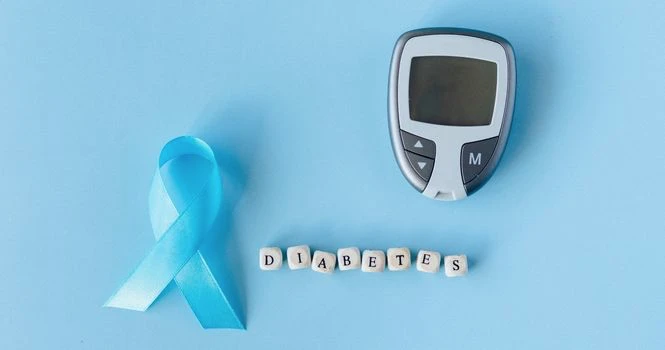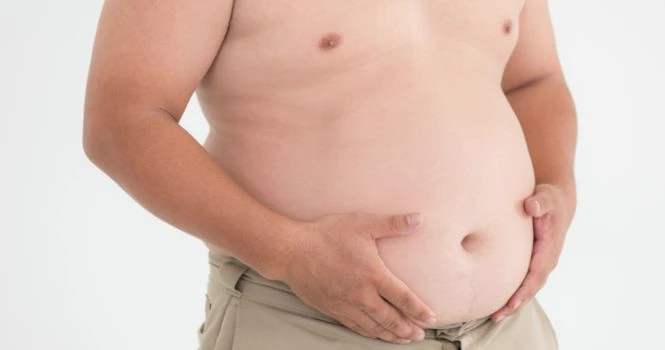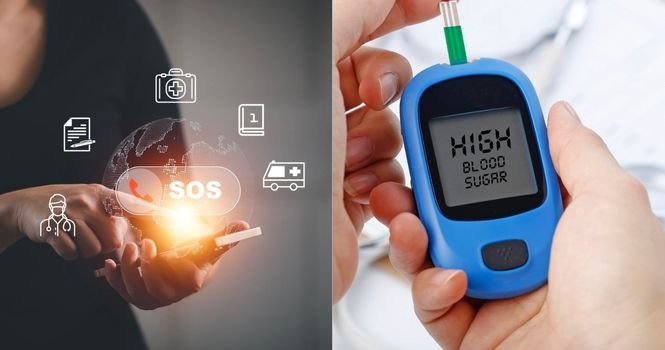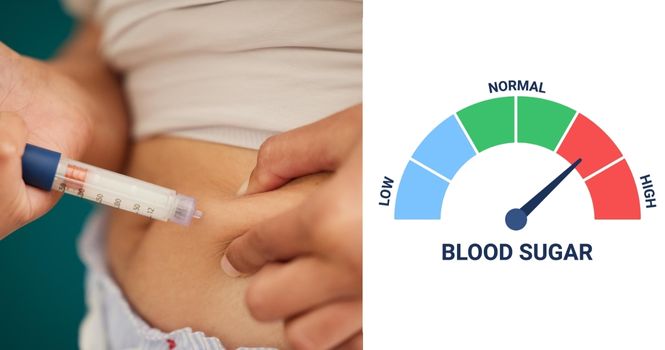The following table illustrates the natural history of Diabetes, when the healthy patient goes from normal glucose tolerance to impaired glucose tolerance to Diabetes Mellitus.
| Normal Glucose Tolerance | Impaired Glucose Tolerance | Diabetes Mellitus | |
| Fasting Plasma Glucose mg/dL(mmol/L) | < 100 ( 5.6 ) | 100 – 125 (5.6 – 6.9) | >= 126 ( 7 ) |
| 2 hours after Glucose Load* mg/dL(mmol/L) | <140 ( 7.8) | 140 – 199 (7.8 – 11 ) | >= 200( 11.1 ) |
| HbA1c % | < 5.7 | 5.7 – 6.4 | >= 6.5 |
*Glucose load given is 75g Glucose dissolved in 300 mL of water after an overnight fast in persons who have been receiving at least 150 – 200g of carbohydrate daily for 3 days before the test.
If Plasma Glucose Test gives a value of less than 126 mg/dL, and if the values are fluctuating and if diabetes is suspected, then Standardized Oral Glucose Tolerance Test is done to confirm the Diagnosis.
The patients are often on a low carbohydrate diet as their blood sugar levels are rising or on the borderline. In order to get the test results accurately and to optimize insulin secretion and effectiveness, the patient should have at least 150-200g minimum carbohydrate consumption 3 days prior to the test.
Procedure of Standardized Oral Glucose Tolerance Test
The patient should not eat anything after midnight, prior to the test day.
On the morning of the test day, the patient is given 75g of Glucose powder dissolved in 300mL of water, which needs to be consumed within 5 minutes.
Precautions to be taken are
- The Test should be done in the morning, as diurnal variations are possible.
- Patients should not be active
- Patients should not smoke
After ingestion of 75g of Glucose in 300mL of water within 5 minutes, the first sample is taken.
The second sample is taken 2 hours after the first sample.
A fasting value of 126mg/dL (7mmol/L) or higher or a 2-hour value greater than 200mg/dL(11.1 mmol/L) is diagnostic of Diabetes Mellitus.
Diagnosis for Diabetes Type 1
The difference between type 1 and type 2 are Prediabetes have been explained in previous articles.
The table below shows the Diagnostic sensitivity and specificity of auto-immune markers for Newly Diagnosed Diabetes Type 1
| Sensitivity | Specificity | |
| ICA antibody | 44–100% | 96% |
| Glutamic acid decarboxylase (GAD65) | 70–90% | 99% |
| Insulin (IAA) | 40–70% | 99% |
| Tyrosine phosphatase (IA-2) | 50–70% | 99% |
| Zinc transporter 8 (ZnT8) | 50–70% | 99% |
What Happens after Diagnosis of Diabetes
The patient has to undergo counseling to clear his or her doubts regarding the disease, as it is a lifelong disease and more importantly to come to terms with reality and face the problem and knowing the importance of keeping the blood sugar within normal limits to avoid the complications, which are preventable.
Depending on the type of Diabetes, Lifestyle modifications are discussed with your doctors and medications are prescribed according to the duration and clinical condition of the patient.
Q & A on Criteria for the diagnosis of Diabetes Mellitus
Can HbA1c detect Diabetes?
It is used along with the Fasting Glucose Test and Standardized Oral Glucose Tolerance Test.
What is differential diagnosis of diabetes?
Differential diagnosis of Diabetes are
- Wolfram Syndrome
- Autosomal Recessive syndromes
- Hyperglycemia due to Tissue Insensitivity to Insulin
- Hormonal Tumors ( Acromegaly, Cushing Syndrome, Glucagonoma, Pheochromocytoma
- Corticosteroids
- Liver diseases (Cirrhosis, hemochromatosis)
- Muscle Disorders (Myotonic dystrophy)
- Adipose tissue disorders (Truncal obesity)
- Acanthosis nigricans
How do doctors diagnose Prediabetes?
You can read more about Prediabetes.
How long have I had Diabetes before diagnosis?
People can be asymptomatic for many years before being diagnosed. Though increased thirst and urination may be presenting complaints to some people, largely it may go unnoticed and could be found with glucose in urine or high blood sugar, during routine investigations for some other ailment.
Can early stage diabetes be reversed?
Yes. It can be reversed.













